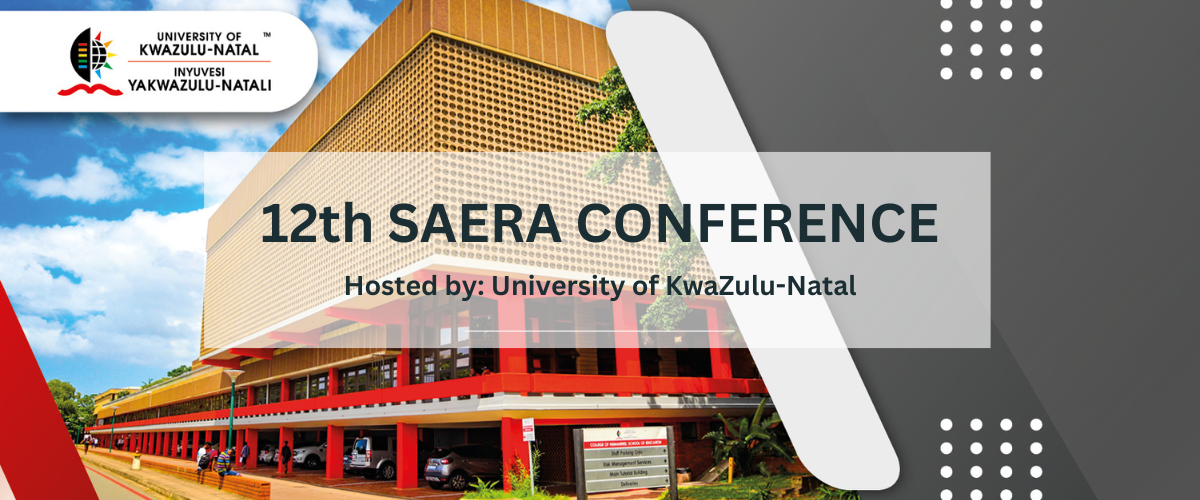

The SAERA executive would like to invite you to its 12th annual conference hosted by the School of Education, University of KwaZulu-Natal.
Conference Dates: 3 – 6 November 2025Pre-conference workshops: 09h00 – 13h00 Monday, 3 November 2025 Main conference: 14h00 Monday, 3 November – 13h00 Thursday, 6 November Venue:Elangeni Hotel, Durban, KwaZulu-Natal
Download Call for Papers
Side Events
IMPORTANT DATES
Due date for submission of abstracts: 30 May 2025
Due date for registration: 15 August 2025
Due date for payment: 7 September 2025
Submission of Abstracts For 2025 SAERA Conference
All abstracts should be submitted via the conference website: https://saeraconference.co.za/abstracts-submission/
Abstract submission will open on 31 March 2025 and close on 30 May 2025.
Abstracts should be submitted to the Special Interest Groups (SIGS) within which your paper would best be located. SIG co-ordinators will then manage the review process. If your paper does not fit clearly into a SIG, then select the General Stream.
Action Research
Assessment and Testing
Curriculum Studies
Educational Technology
Inclusive Education
Knowledge building in Education
Self-reflexive and arts-based methodologies
Teacher Education
TVET, Higher Education and Work
General stream
Abstracts may be submitted for individual presentations, panel presentations or arts-based contributions. All abstracts should be clearly linked to the overall theme of the conference and authors should indicate the SIG in which they wish to present.
Individual Papers (200-250-word abstract)
Individual papers are to be based on substantive research (empirical and/or theoretical). Proposals of research still to be conducted, or research proposals should not be submitted. Abstracts for empirical studies need to clearly state: the background/context of the study, the research problem, the research design, the findings of the study and the main argument of the paper. Abstracts for theoretical or methodological papers must state the research problem, the body of scholarship engaged and the main argument. In addition, four to six keywords should be provided. Please use the template provided on the website for the submission. Presenters will have 15 minutes to present and 10 minutes for interaction and question time.
Select Individual paper during abstract submission process online.
Panel Presentations (1 000-word abstract)
Panels may include three to four presenters. In addition, four to six keywords should be provided. The duration of the presentation will be 90 minutes, including discussion. Where possible, we invite panels with a mix of experienced and early-career researchers.
Select Panel presentation during abstract submission process online.
Arts-based Contributions (300-400-word abstract)
A maximum of 6 people per team may submit abstracts for arts-based contributions that may range across a spectrum of disciplines but remain within the conference theme. The presentation should take 90 minutes. Four to six keywords or phrases should be provided. Examples of arts-based presentations may include visual representation in areas such as autobiography and memoir, poster art and display, visual narratives, multi-media thesis representations and/or multi-media forms of working with research data and representation.
Select Arts-based contributions during abstract submission process online
Abstract Submission
Registration Form
